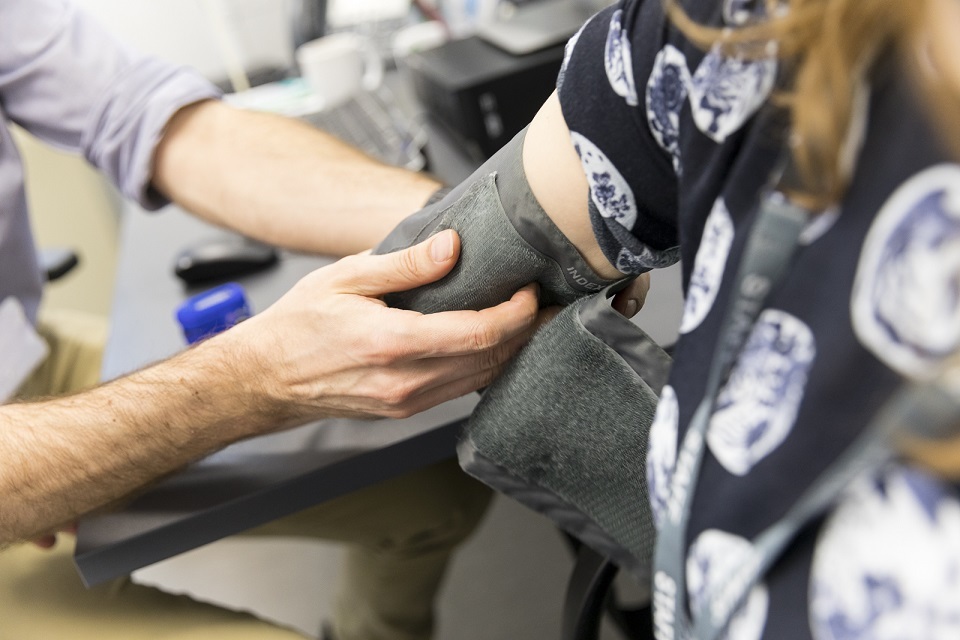Life-Saving Health Checks: A National Initiative to Combat Preventable Diseases
In a bustling office in Solihull, UK, employees are taking a break from their usual routines and lining up for a health check that could change their lives. Mark, a thirty-something warehouse manager, is nervous but hopeful. “I’ve been feeling run down, but who has time to see a doctor?” he admits. For Mark and over 130,000 others, the chance to receive a swift, life-saving NHS health check at their place of work could be the difference between an early intervention and facing grave health consequences. Today marks the launch of a pioneering initiative aimed at preventing deadly diseases like heart disease, diabetes, and kidney disease through convenient workplace health screenings.
Pioneering a Health Revolution
As part of the UK government’s ambitious health initiative, local authorities have selected areas such as Norfolk, Medway, and Lambeth as pilot sites for this life-saving program. The health checks are designed to be brief yet comprehensive, collecting critical data to evaluate each participant’s cardiovascular risk. The goal? To not only save lives but also significantly reduce the strain on the National Health Service (NHS).
- Target an estimated 130,000 individuals nationwide.
- Intended to free up NHS appointments by providing quick workplace checks.
- Precise data collection to evaluate cardiovascular health risks in real-time.
Andrew Gwynne, Minister for Public Health and Prevention, emphasized the urgency of this program, stating, “We know many deadly diseases can be avoided if we seek help in time. This is a pivotal moment for community-focused healthcare, aligning economic productivity with improving the health of the nation.”
The Data Behind the Disease
Current statistics highlight a worrying trend: over 16 million people are eligible for an NHS Health Check, yet only 40% take the up on it. This discrepancy is not just a statistic; it’s a public health crisis. For many, especially men, the reluctance to participate in preventative healthcare could cost them dearly. Research from the Institute of Health Metrics reveals that men are 1.5 times more likely to develop cardiovascular issues at an earlier age than women, yet they are less likely to seek preventative care. This new program seeks to counteract that trend by bringing the health check directly to employees in varied sectors like building, hospitality, and transport.
Bridging the Gap in Healthcare Access
As councils like those in Lambeth ramp up their outreach efforts, new methodologies are emerging to make health checks more accessible. “Health checks can save lives,” said Councillor Louise Gittins, Chair of the Local Government Association. “By partnering with employers, we can ensure more people get health checks in their communities, ultimately improving overall health outcomes.” Proactive outreach to individuals in high-risk communities will be crucial for achieving the government’s health targets.
Dr. Amy Thompson, a public health researcher at the University of East Anglia, shared insights from her recent study on workplace health interventions. “Workplace health checks offer a unique opportunity to provide preventative care that aligns with individuals’ daily routines, removing barriers to access,” she noted. “Our data suggest that early intervention through such programs could potentially decrease the incidence of related diseases by up to 30% in the long run.”
Innovative Digital Solutions on the Horizon
In a further step towards making health checks more accessible, the government announced a digital version of the NHS Health Check, set to launch early in 2025. Users will be able to conduct health checks from their homes via the NHS App, with results integrated seamlessly into their GP records. Aimed at delivering approximately one million checks over four years, the digital initiative will serve as a complement to the face-to-face checks.
Local authorities in Norfolk, Medway, and Lambeth have been chosen to pilot this innovative digital approach. The goal is to broaden participation while catering to those who may struggle to attend physical appointments. “This change reflects our commitment to making healthcare more convenient and user-friendly,” commented Dr. Sarah Mulholland, an NHS Digital Transformation Advisor. “The flexibility of a digital platform will encourage more individuals to take control of their health.”
The Role of Employers in Health Promotion
Companies are starting to recognize the pivotal role they can play in promoting employee health. For instance, Jaguar Land Rover has committed £15 million annually to health initiatives. Chief Medical Officer Dr. Steve Iley emphasized, “Healthy and engaged colleagues are fundamental to our business success. We see health checks as a cornerstone of our employee wellbeing strategy.” Their collaboration with local authorities aims to provide critical checks to approximately 4,500 employees in Solihull.
This growing recognition underscores a larger shift: employers are beginning to appreciate that healthier employees mean higher productivity and lower turnover rates. By investing in preventive measures, they are not just contributing to public health but also fortifying their own organizational health.
A Call to Action for Public Involvement
The success of the health check program depends heavily on public participation. With the alarming data showing only 40% of eligible individuals completing their checks, stakeholders are urging everyone to take action. “This innovative program is about furthering our commitment to public health,” emphasized David Hargroves, NHS National Clinical Director for Stroke. “I urge anyone invited to a check to come forward. Early detection is a life-saving opportunity.”
This nationwide initiative paints a hopeful picture where prevention rather than treatment could take center stage in healthcare. As the health checks rollout across workplaces, individuals are encouraged to embrace this unique opportunity. For many like Mark, the quest for health is not a solitary one; it is a community-focused movement aimed at ensuring everyone has the chance to live healthier, longer lives.
Source: www.gov.uk


